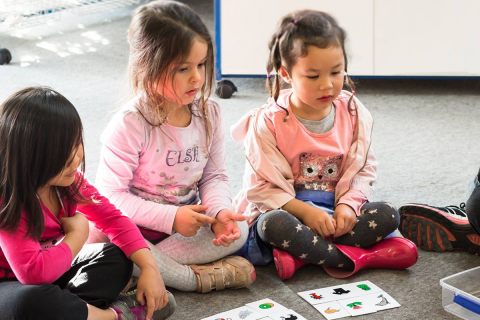Friday, 4 November 2016 10:41 am | New Zealand Government Press Release
Hon Hekia Parata
Minister of Education
4 November 2016
Consultation begins on early childhood curriculum
Education Minister Hekia Parata is inviting teachers, parents and anyone with an interest in the early learning sector to help refresh its curriculum framework for the future.
“Te Whāriki has long been recognised as world leading and continues to bean important tool for delivering quality early learning for our youngest New Zealanders,” says Ms Parata.
“However it is now 20 years old. I want to ensure the curriculum remains relevant and robust for our children in years to come, so it is time for an update.
“The aspirations and vision for learning will not change in this update. Rather the curriculum will simply better reflect today’s New Zealand, developments in education and make stronger links to school, kura Communities of Learning | Kāhui Ako.”
The consultation will also focus on clarified and condensed learning outcomes on ways to make the document easier to use, a refreshed ‘look and feel’.
“The ECE participation rate is currently at a record high. In the year to March 2016, 96.6 percent of children starting school had participated in ECE,” says Ms Parata.
“This is great news because it means more of our earliest learners are getting the best possible start to their education and we want to keep it that way.”
The refresh has been led by the Ministry of Education with a team of writers from the sector, all practitioners and academics. The original writers of Te Whāriki have also been involved and consultation with sector representatives has taken place. This picks up on the work carved out by the Advisory Group on Early Learning which reported in 2015.
“I am pleased with the progress to date including the valuable engagement with members of the sector. I am now widening the consultation so that an even broader audience can contribute,” says Ms Parata.
“A quality curriculum and excellent implementation is critical to building a strong educational foundation for all children.”
The consultation runs from 4 November to 11 December and includes hui around the country, meetings with key sector groups and an online survey.
The consultation document and other information is available at www.education.govt.nz/te-whariki-consultation/
AUCKLAND KINDERGARTEN ASSOCIATION SUPPORTS GOVERNMENT DECISION TO CONSULT ON UPDATE OF EARLY CHILDHOOD EDUCATION CURRICULUM
The Auckland Kindergarten Association has applauded the Government’s decision to consult on its update of the early childhood education curriculum, ‘Te Whariki’.
Association CEO Tanya Harvey said today (04 November) there was ‘deep affection’ for the existing curriculum. And she and others in the early childhood education sector ‘appreciate and applaud’ the Minister’s decision to consult more widely on how it was to be changed.
Ms Harvey said the curriculum update had been undertaken so far by seven government-appointed ‘writers’, and was set to modify the way children were taught in early childhood education services throughout New Zealand.
She said it was ‘a tricky job’ to refresh the 20-year-old curriculum for a new generation whilst retaining the ‘spirit and essence’ of the old document, and it was ‘a very good idea to ask those working in the early childhood education sector to help achieve this’.
Ms Harvey said government was seeking to update educational content, review learning outcomes and how they were assessed, create links between the early childhood and primary school curricula, and strengthen advice on curriculum implementation.
The review seemed to be ‘on track to produce something that would work well for everyone’, but it was likely that input from the sector would make it even better, Ms Harvey said.
The Auckland Kindergarten Association was founded in 1908, and is the largest kindergarten association in New Zealand. It runs 107 kindergartens, four KiNZ early learning daycare centres (with a fifth set to open in Orewa), and five play groups. It cares for more than 8500 children a year.

